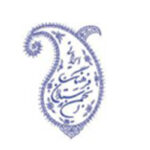Reflections on the Challenges of Our Time
The Association for Bahá’í Studies conference, held during the last week of July 2021, aims to “promote learning that correlates the insights of Bahá’u’lláh’s Revelation and the discourses of academic and professional fields.”[1] Universal House of Justice member Mr. Paul Lample gave the opening address.
Speaking to a virtual audience, Mr. Lample focused his address on a few concepts. He began by describing the present moment in the history of the Faith. “We stand between one concluding series of plans,” he explained, “and the beginning of another. The close of the first century of the Formative Age and the beginning of a new century.” Drawing on the 25 November 2020 message from the Universal House of Justice, Mr. Lample described this special time, saying, “this is a year of profound reflection. Reflection on the life of ‘Abdu’l-Bahá, on the strength of the Covenant of which He was the Centre, and of the challenges that we’ve met in the past and the challenges that we have to meet in the future.”
Throughout time, humanity has attempted to describe and study the concept of morality, and to ask questions such as, “What’s good? What’s right? What’s just?” and “[What results] in peace, unity, prosperity, a meaningful life, and the common good in the form of an ever-advancing civilization?” explained Mr. Lample. As he reminded the audience, Bahá’u’lláh tells us that the reality of the human being is the soul, and each soul has divine endowments that it must strive to develop to their full potential. A just society is one in which every individual is enabled to cultivate and express these potentialities, and as Mr. Lample stated, one in which “each human soul born into this world is a trust of the society as a whole.”
From here, Mr. Lample began to explore what Bahá’u’lláh says about these questions, which pertain to morality and the moral order. He also gave examples of some of the gifts and instruments Bahá’u’lláh has made available to humanity for its efforts to aid in the transformation of society and to establish justice along the way.
As Mr. Lample explained, once a soul recognizes Bahá’u’lláh, it becomes a new creation born of the spirit of faith, and it finds “a conviction in a spiritual reality that [it] didn’t have before.” Mr. Lample then described a new mode of thinking and living this soul will take on, and said:
The association with this deep spiritual conviction then drives the beginning of new relationships with God, with ourselves, with others, with the world, …with the institutions of society and so on. For Bahá’ís, spirituality and faith is a conscious conviction and action of responsible moral agents toward these right relationships.
Mr. Lample then shared a list of some of the gifts and instruments that Bahá’u’lláh has given humanity on its path to changing these relationships. These include: the independent investigation of the truth; the concept of Divine love – the love that has to be used to bind people together, and join them in their search for solutions; Justice – which aids in understanding the common good and what makes for human happiness and a meaningful life; the power of speech – which can be used to either divide people, or to bring people together and unite them; tolerance and righteousness for governing the affairs of human beings – doing what is right and forbearing with others as they also make an effort; and the idea that religious moral teachings are empirical – that “religion is tested by whether or not it brings forth good fruits.” The final example Mr. Lample gave as one of the gifts from Bahá’u’lláh is His Covenant and the Administrative Order.
Mr. Lample described the Covenant as being like a reliable “compass that keeps you pointed in the right direction. No matter where you are, no matter what stage in the development of the Faith, no matter what challenges.” By doing so, Bahá’ís are enabled to maintain their unity, and to extend Bahá’u’lláh’s Teachings to every corner of the world.
The Administrative Order, as Mr. Lample explained, “beyond the Guardianship and the Universal House of Justice, consists of the institutional arrangements among Bahá’ís themselves,” – including the systems that are developing for the elections of Bahá’í institutions. Mr. Lample described the developing relationships as having a character of mutual support. Regarding this, he said:
The individual, the community and the institutions, rather than competing with one another to exert their own rights and prerogatives, are organized in such a way as to harmonize with one another and the responsibility of each is essentially to look out for the other one… So, the community is responsible for the individual and the institution; and the institution is concerned about the individual and the community’s wellbeing; and the individual is responsible to ensure that there’s a thriving community and a strongly supported institution.
Building on the theme of the Covenant and its Centre, ‘Abdu’l-Bahá, Mr. Lample outlined some of the ways Bahá’ís learn from the Master in their own efforts to transform and mold the relationships in society. The examples given were of ‘Abdu’l-Bahá as a moral agent – “how He acted in the world to be able to transform it in all of it dimensions and bring it into alignment with Bahá’u’lláh’s expectations for humanity.”
These examples included the following:
- ‘Abdu’l-Bahá’s contribution to the intellectual challenges facing humanity – through the Will and Testament of ‘Abdu’l-Bahá, the Tablets of the Divine Plan, The Secret of Divine Civilization, the Tablets to The Hague and the various presentations He made in the West – which guide humanity in its own efforts to transform society.
- The self-identity of ‘Abdu’l-Bahá – He considered Himself the servant of Bahá’u’lláh and would not accept any praise; He knew what His mission was and, Mr. Lample explained, “nothing could sway Him from performing the function that He knew He needed to perform.” Looking at this example, human beings can reflect on their own identities – about whether they can see themselves also as servants of Bahá’u’lláh who have certain responsibilities as moral agents.
- The way ‘Abdu’l-Bahá used the power of speech – ‘Abdu’l-Bahá used His speech as a way to call people to a higher way of thinking. “Throughout the whole of His writings, [Bahá’u’lláh] talks about the nature of speech,” said Mr. Lample, “One form of speech is a deadly poison, another a healing remedy. Sometimes it’s meat, sometimes it’s as mild as milk. And so, wisdom has to be used to engage others.” Mr. Lample went on to say that Bahá’ís have to develop a capacity for moral persuasion because the changing of these relationships is not going to be done by Bahá’ís alone. “Every nation and every people will have to participate,” emphasized Mr. Lample. In addition, the language that Bahá’ís use cannot simply be a parroting or blindly repeating the language used in the wider society. “Like ‘Abdu’l-Bahá, we can analyze the language and conversation and attempt to transcend it,” commented Mr. Lample.
- ‘Abdu’l-Bahá’s power of thought – which helps humanity transcend the existing moral framework in the world. One example of this is the challenge of the extremes of wealth and poverty that exist in the world today. Mr. Lample commented that the current economic system is profoundly unjust, but that human beings created this current system because of what they believe and what they value. “Bahá’u’lláh didn’t come with an economic system,” explained Mr. Lample, “What He came with was a different way of thinking – that once human beings thought about these things differently, then they could find a way to arrange their affairs in a more just way.” When ‘Abdu’l-Bahá speaks about material and spiritual progress, as Mr. Lample explains, “He talks about the idea that the economic order has to provide for the health of everyone, has to provide everyone a home, has to take care of them in their retirement, has to take care of them in their ill health,” and that a just economic order allows for everyone to fulfill their two-fold moral purpose.
Drawing on these examples from the ways that the Master exemplified Bahá’u’lláh’s Teachings in the world, Bahá’ís learn to align their own actions and purpose with the Divine Will.
Although there are a myriad of challenges humanity is facing today, the following remarks by Mr. Lample, demonstrate that the actions Bahá’ís take in their efforts to implement the global Plans set out for them by the Universal House of Justice are decidedly hopeful:
So we’re learning , whether it’s in our community building process, in our work of social and economic development, in our involvement in the discourses of society at different levels, whether the personal involvement, or the collective involvement of Bahá’íinstitutions – we’re learning how to create spaces, expand those spaces, and then, within those spaces, try to understand what Bahá’u’lláh said and translate it into action to reframe the relationships among individuals, communities and institutions, to put them on a new basis, to create justice, to create understanding, to eliminate prejudice, and so on. And as our power and capacity grows, then, in the future, we’ll be able to even expand those spaces further. And as they multiply, as they become more powerful, as our insights into human problems grow, then we’ll start to see this transformation that Bahá’u’lláh has in mind, we’ll begin to resolve human problems.
In his concluding remarks, Mr. Lample emphasized that there is a high degree of effort and discipline required in the work of Bahá’ís today. As he commented, there is no magic formula for resolving human challenges. Challenges can be met through actions taken little by little and day by day, “to translate what Bahá’u’lláh said into reality and action.”
A video of this talk in full is available at https://vimeo.com/563878944.
Category: Features








